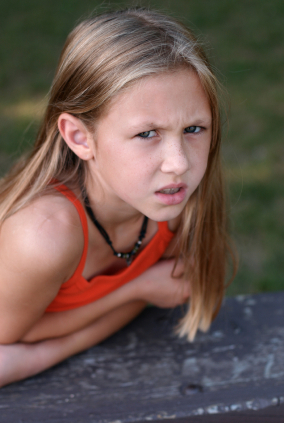Irritability and Unipolar Depression in Kids
 At the 2012 Pediatric Bipolar conference sponsored by the Ryan Licht Sang Foundation, Graham J. Emslie gave a talk on irritable mood and unipolar depression in youth.
At the 2012 Pediatric Bipolar conference sponsored by the Ryan Licht Sang Foundation, Graham J. Emslie gave a talk on irritable mood and unipolar depression in youth.
Irritability is common in unipolar depression. Emslie suggested that if a child’s irritability is severe and the child destroys objects and denies being irritable, bipolar disorder might be likely. Irritable unipolar depressed children will generally acknowledge being irritable.
Emslie reported that 96% of youth in his randomized placebo-controlled studies of selective serotonin reuptake inhibitor antidepressants (SSRIs) recovered from their unipolar depression, but 46.6% relapsed. Those children with residual depressive symptoms were at double the risk for relapse into a depression compared to those who remitted completely. In those without residual depressive symptoms, there were no relapses if the children stayed on their medications.
Children were excluded from Emslie’s study if they had a positive family history of bipolar disorder, and perhaps because of this, very few participants switched into mania with antidepressants.
MORAL: Treat to remission and stay on the antidepressants associated with the remission. This has previously been found to be important for adults as well. (Emslie added that he would advise that a child stay on an antidepressant for at least a year after a remission was achieved, and longer if the child had difficulties in academic performance or relationships at school.)
Children with unipolar major depression who had a few manic symptoms at a subsyndromal level had poorer outcomes in Emslie’s study. The presence of subsyndromal manic symptoms in bipolar depressed adults is a risk factor for increased switching into mania when antidepressants are added to a mood stabilizer.
Comorbid substance abuse is another risk factor for poor outcome in childhood depression.

